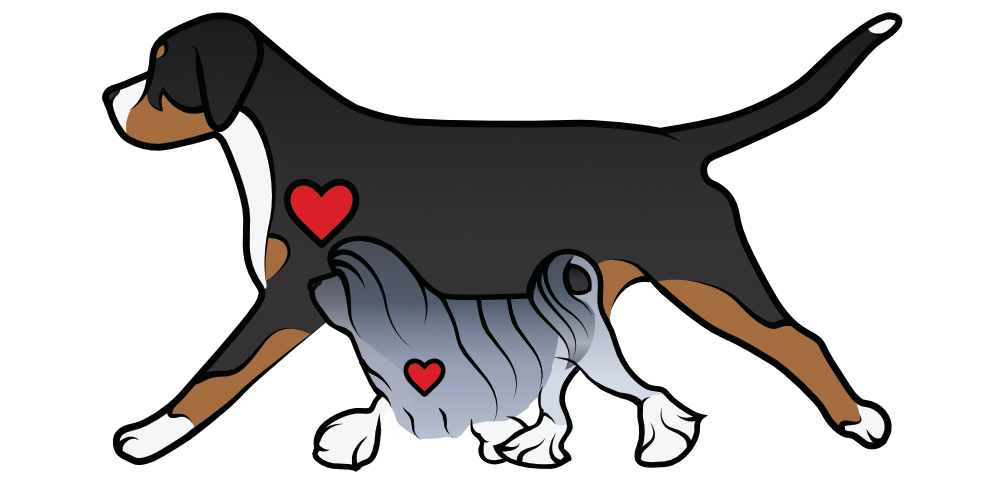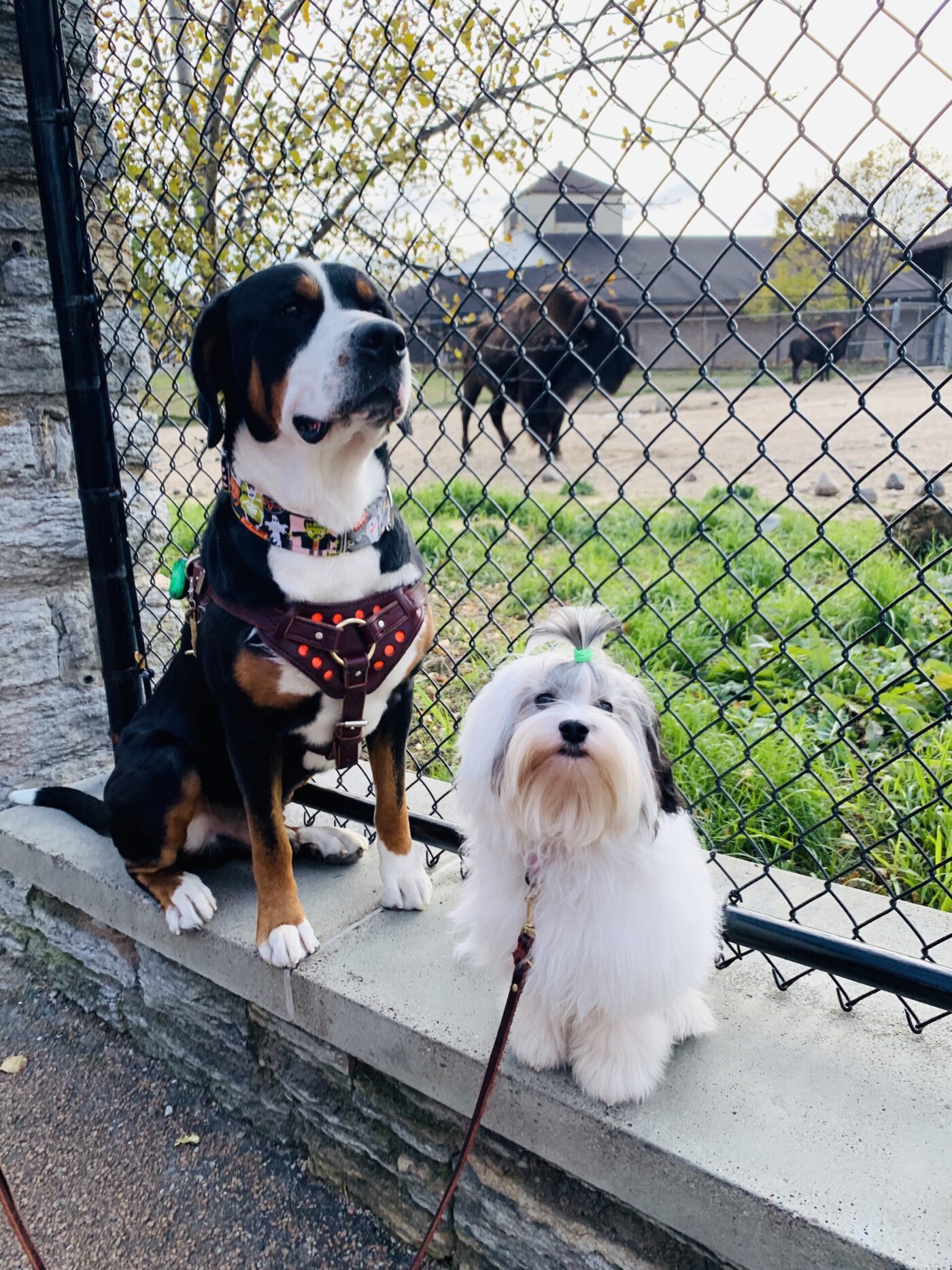Selecting the right dog for service work or performance isn’t looking at just one or two traits. It is looking at a collection of traits packaged into a soundly structured body that can function effortlessly for years to come. A service dog is a significant investment, and we want to make sure that we are giving our service dog and sports handlers the advantage of selecting a dog with an amazing temperament for the job. The traits that we look for in Service Dog Prospects are the same ones that we look for in Performance Prospects.
Here’s the list of traits that we find are ideal in our prospects. Some of these traits have been selected through thoughtful breeding decisions and further cultivated through conditioning, litter rearing practices, and training. Some traits may just be the luck of the draw.
- Bombproof. This is the term used to describe dogs who have strong nerves and can withstand many different types of environmental startles and stress. These dogs take all kinds of noise and activity in stride. If startled, they should recover quickly after evaluating the situation and get back to work. These are dogs that are ultra confident in new situations.
- Attuned to People. We’re looking for dogs who can connect with people and the situation without requiring direct communication. These dogs tend to “just know” what you are feeling and thinking. As puppies, these tend to be the ones a step or two ahead of the communication game. If often feels like they can read your mind and thorough understand the assignment. *They might not execute the assignment exactly how you wish! 🙂
- Natural Check In. We’re looking for dogs who naturally check in with people. Behaviors we tend to see are: 1. Looking back at their handlers periodically on walks 2. Stop in the middle of play to look for their person 3. Unsolicited focus on their people throughout the day. We can harden this trait with reinforcement as well.
- Active Problem Solver or Displays Intelligent Disobedience. Dogs cannot be trained for every situation they encounter, and there may be times when handlers are unconscious. In these situations, dogs will have to actively solve a problem without assistance or disobey the handler. In our Lowchen, this may be a dog that actively sits on the person’s chest so that he/she cannot get up during an episode. In puppies, we typically see signs of this as creativity and persistence.
- Confident in Decisions. Service dogs must be be very confident in their decisions. These are dogs who may have to sometimes bark for help from bystanders or must be insistent that their owners pay attention to something specific. These are not dogs who can be reluctant in their work. They need to be confident and insistent to ensure their people survive. In puppies, we see this as puppies who are bold and purposeful in their actions. They do not hesitate or apologize when engaging.
- Communicator. Service dogs often have to communicate with their people – be it to sit down, stay down, stop, or to get help. Service dogs must play an active role in communication. We see this as puppies who have no problems communicating to their littermates or telling humans about their opinions.
- Natural Idle Mode. The vast majority of time spent as a service dogs is to be in idle mode. They are waiting under a table at a restaurant. They are waiting under the desk in class. They are waiting quietly behind the counter at work. They spend most of their time waiting for the next task or for the next alert. A dog that is content to just be will be a happier and easier to manage service dog. As puppies, we look for ones who are happy to sit quietly in a stroller during downtime while shopping or happily in a crate ringside at a dog show.
- Forgiving. This is a very difficult trait to assess in 8 week old puppies, though there is an item on some puppy temperament and aptitude tests to assess how willing a dog is continuing to work with a person after a faux pas. We usually look for puppies that are still very willing to interact after we make a mistake. That mistake can be giving the inconsistent verbal and hand command or after dropping a toy on them. If the puppy doesn’t hold a grudge, and continues to work, that is a very good sign.
- Dog and Human Positive or Neutral. As puppies, we look for puppies who have a positive or neutral reaction to dogs or humans. For therapy dog prospects, they must have high positivity towards humans. As puppies, a positive reaction to humans shows up as eager to engage strangers in cuddles. A neutral reaction would be ignoring a barking dog.
- Work Ethic. Being a service dog is a job that often requires passive work without any obvious rewards. These dogs should be intrinsically motivated to work. While this is something that can be shaped in young dogs, there are dogs that are naturally born with work ethic. These puppies seem to be drawn to working with humans and will actively engage their brains with little to no extrinsic motivation.
- De-escalator. In most situations, we’re looking for service dogs that de-escalate the situation. When emotions run high, we’re looking for a dog that brings that sense of cool, calm, and collected. We’re not looking for a dog that escalates emotions or likes to “jack things [emotions] up” so to speak. As puppies, we’re looking for the one that walks away from conflict or brings the calming effect to the group. *This is not the same as a dog that isn’t persistent or engaged in their work. This is specific to de-escalating emotions.


